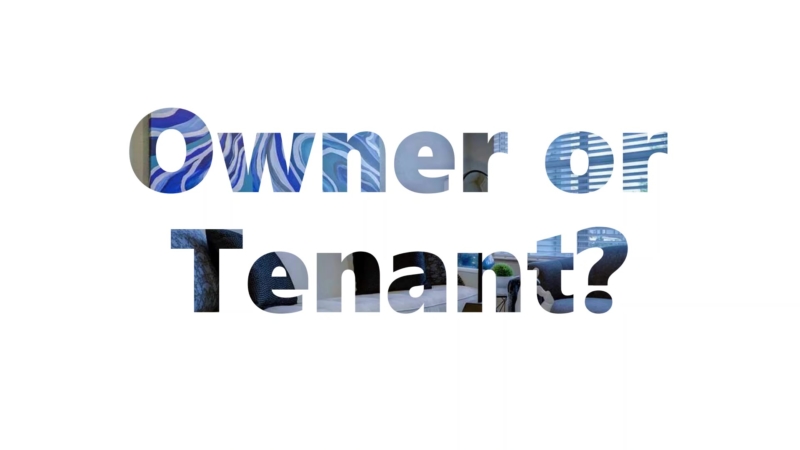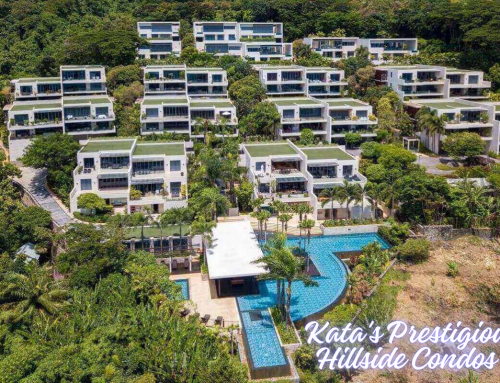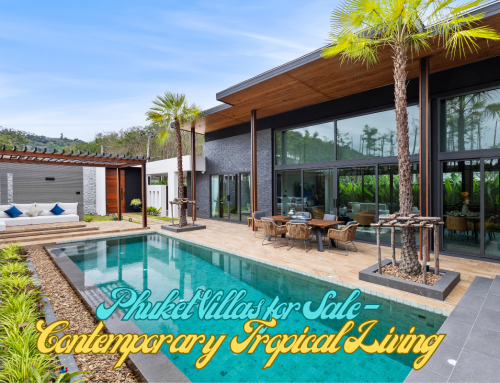Phuket continues to attract international buyers, but due to Thai property law, foreign ownership is often limited. This is where Phuket leasehold property comes into play. Understanding leasehold arrangements is essential for any foreigner considering property investment on the island. This Phuket property leasehold guide hopes to inform buyers of the laws and the options.
Phuket Property Leasehold Guide: What Is Leasehold Property in Thailand?
In Thailand, a leasehold property is typically a 30-year lease registered at the Land Department. The foreign buyer does not own the land or the property outright, but instead leases it for an agreed period. While lease renewals (e.g., “30+30+30”) are often discussed, these extensions are not guaranteed under Thai law.
This form of ownership is commonly used for both villas (which sit on land that foreigners cannot own) and condominiums (once the foreign freehold quota is full).
Leasehold Condominiums in Phuket
Foreigners can legally own up to 49% of the total saleable area of a condominium project on a freehold basis. When this quota is full, developers may offer the remaining units on a leasehold basis to foreigners.
These leasehold condos may be slightly more affordable, but they still remain technically Thai-owned. The lease is registered against the individual unit, not the land itself, and is often structured with optional renewal clauses and assignment rights. However, the overall legal control remains with the Thai entity.
Leasehold Villas: A More Complex Arrangement
When foreigners purchase villas in Phuket, the land beneath the villa must be leased, as foreign nationals are prohibited from owning land in Thailand. These leases are often set up through Thai companies or nominee structures, which come with significant legal and financial risks.
We strongly recommend legal guidance when considering a leasehold villa to ensure that the contract provides maximum protection and aligns with the buyer’s intended use and exit strategy.
View all the Phuket Villas For Sale
Common Myths About Phuket Leasehold Property
- The 30+30+30 Structure Is Not Legally Binding: Renewals beyond the initial 30 years must be agreed upon again in writing. There is no automatic right to renew.
- You Cannot Easily Convert Leasehold to Freehold: Converting to freehold is only possible if a freehold quota becomes available, and the Thai owner agrees to sell.
- Your Heirs May Not Inherit Leasehold Rights Easily: While leasehold rights may be assigned, inheritance is not as straightforward as with freehold.
You can read our article on 30+30+30 leaseholds here:
The Problem with Condo and Villa 30+30+30 Leaseholds in Phuket
When a Phuket Leasehold Property Still Makes Sense
Despite its limitations, leasehold property can still be a practical solution:
- If you are investing for the short-to-medium term
- The leasehold makes more sense financially than renting
- If you missed the freehold quota in a condominium and just MUST have a unit there
- If the leasehold unit is priced significantly lower than freehold counterparts
- If you are purchasing through a structure that includes renewal protections and exit flexibility
In most situations, it is not advisable for people to enter a lease agreement on a condominium unit. You can read more about this here:
Pitfalls of Buying a Leasehold Condo in Phuket
Why Freehold Is Still Preferred When Available
If you qualify for a foreign freehold condo, it remains the safest and most straightforward form of ownership. Freehold units are in your name, fully protected under Thai law, and are generally easier to sell or pass on to heirs.
For buyers seeking long-term security, peace of mind, and investment value, freehold remains the gold standard.
Rather than entering into a leasehold contract, it is highly advisable to instead purchase a Foreign Freehold Phuket Condominium .
There are also many benefits and advantages of owning a freehold condominium in Thailand.
Get Professional Guidance Before You Buy Phuket Leasehold Property
Leasehold property can be a valid option in Phuket, but it must be approached with care. A qualified property lawyer is essential to ensure your rights are protected, especially when dealing with villa lease structures or corporate setups.
Related Reading for Phuket Property Buyers
- The Option of a 30-Year Leasehold When Buying a Villa in Phuket
-
Using a Thai Company Limited to Purchase a Leasehold Condo Unit in Phuket
-
Carrying Out the Necessary Due Diligence When Buying Real Estate in Phuket
For foreigners who want the extra space and possibly a garden, there are some luxury condos which have their own swimming pool, and may even have an outdoor area like a garden. These may come with a much higher price tag, but foreigners can now choose one of the many Foreign Freehold Phuket Condominiums For Sale
Get in Touch | Call Now On: +66 9484 11918
If you’re considering leasehold or freehold property in Phuket, our experienced advisors at Thai Residential can help. Get in Touch today for honest advice and professional guidance.





Social Contact